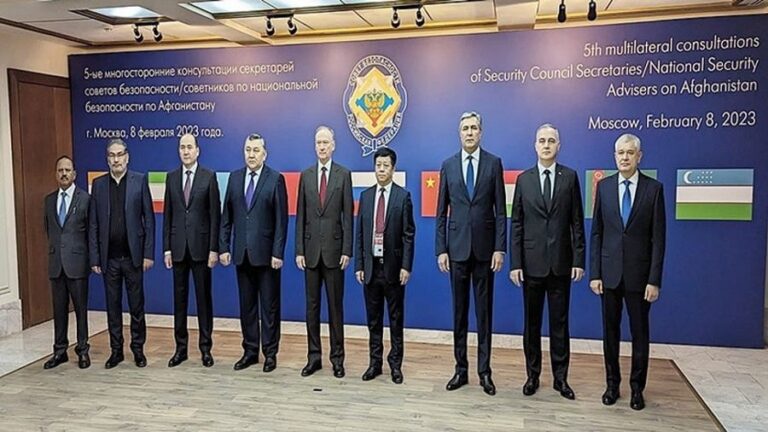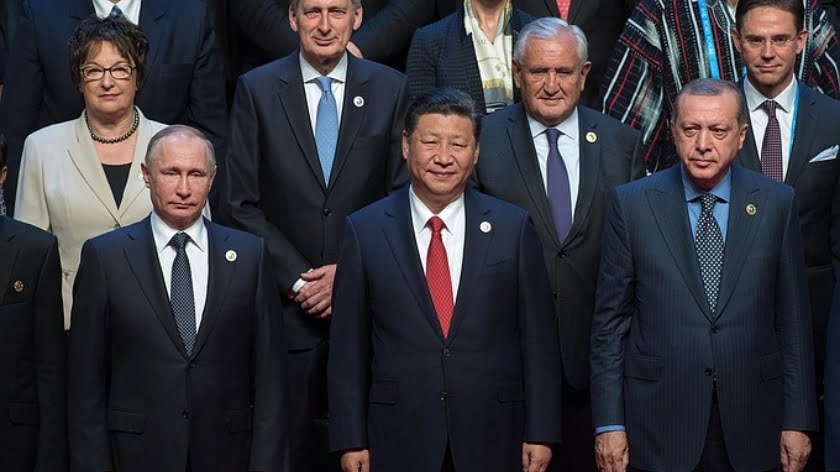NATO Failure Illustrated by Growing Turkish-Syrian Tensions
Military activity on all sides has been increasing in northern Syria. Turkish forces are increasing their presence and the pace of operations against Kurdish held territory north of Aleppo and to the east along the Turkish-Syrian border in what may lead up to a major military operation.
The Daily Sabah in an article titled, “Turkey urges Russia to fulfill deals to clear N. Syria of terrorists,” would speak from Turkey’s point of view regarding what Ankara saw as a terrorist threat to Turkish territory, and its expectations of its Russian counterparts in dealing with the situation or, apparently, Turkey will deal with it itself.
The article claims:
Turkey expects Russia to fulfill commitments made in Syria against terrorist organizations and abide by agreements signed in 2019, Foreign Minister Mevlüt Çavuşoğlu said Wednesday, reiterating Ankara’s call for northern Syria near the Turkish borders to be cleared of terrorist groups threatening security and stability in the region.
Holding a joint press conference with his Russian counterpart Sergey Lavrov in the capital Ankara, Çavuşoğlu said terrorist groups threatening Syria have also upped the ante against Turkey and stressed the need to eliminate them.
Russian military forces as well as their Syrian allies have also increased their activity in northern Syria. The Syrian Arab Army may potentially move into Kurdish-held territory to both act as a deterrent against any possible Turkish offensive, and possibly as a stabilizing factor defusing tensions between Turkey and Kurish fighters.
AP in its article, “US-backed Syrian Kurds to turn to Damascus if Turkey attacks,” would note:
The US-backed and Kurdish-led forces in northern Syria said Tuesday that they will turn to the government in Damascus for support should Turkey go ahead with its threat to launch a new incursion into the war-torn country.
The article also noted:
Erdogan has repeatedly said over the past weeks that he’s planning a major military operation to create a 30-kilometer (19 mile) deep buffer zone inside Syria along Turkey’s border, through a cross-border incursion against US-allied Syrian Kurdish fighters — an attempt that failed in 2019.
Analysts have said Erdogan is taking advantage of the war in Ukraine to push his own goals in Syria — even using Turkey’s ability as a NATO member to veto alliance membership by Finland and Sweden as potential leverage.
The current standoff in northern Syria is one of several crises stemming from the 2011-onward US-led proxy war against Syria. The US and its allies poured billions of dollars in weapons, equipment, and training into opposition forces in an unsuccessful bid to overthrow the government of Syria.
Russia intervened in 2015 at the request of the Syrian government, quickly leveraging its superior airpower and other military capabilities to cut the supply lines of militant groups emanating from both Turkey and Jordan, before assisting Syrian, Iranian, and Lebanese forces in retarking most of Syria’s population centers west of the Euphrates River.
Because of an enduring US military occupation in eastern Syria, Syria’s oil and agricultural land remain in the hands of US-backed forces including Kurdish groups long labelled as terrorists by Turkey.
Turkish Concerns Reflect NATO Dysfunction
The complex contradictions among NATO members like Turkey and the US illustrate a systemic dysfunction within the alliance, rooted first and foremost in how the alliance can serve US interests even (and perhaps especially) at the cost of other NATO members.
This dysfunction has been amplified amid the ongoing conflict in Ukraine where the US is leading Europe in economic self-destruction to advance Washington’s agenda versus Moscow.
It is also illustrated through peripheral geopolitical moves including Finland and Sweden’s attempted ascension into NATO potentially being blocked by Turkey in a bid to resolve various US-engineered pressure points against Ankara including Kurdish militancy and the Gülen opposition movement harbored and perpetrated by the US and its European allies.
The fact that Turkey must use opportunities like the expansion of NATO and its veto power over this process to resolve serious points of contention involving national security between itself and NATO member the United States seriously undermines claims that NATO is a “defensive” alliance.
The US Uses and Abuses Syria’s Kurds Too
Turkey is not the only victim of US double dealings. The US simultaneously supports Kurdish militant groups in holding eastern Syria, denying the Syrian government of essential food and energy, but regularly abandons Kurdish fighters when under attack by Turkish offensives big and small.
A Reuters article from June titled, “Syrian Kurdish authorities to stop wheat going to govt territory,” noted:
Kurdish-led authorities holding Syria’s breadbasket region will ban wheat from entering government territory in a bid to boost reserves, a Kurdish official told Reuters.
The region across north and east Syria is a key source of wheat for Damascus, which imports much of its demand, adding to its troubles in navigating tough Western sanctions.
The US has pushed Kurdish groups under its protection in eastern Syria to pressure the government in Damascus using both food and fuel to do so.
Three years ago when Turkey previously launched a major military offensive against Kurds in northern Syria, the US failed to intervene. Reuters in their article, “US military says not abandoning Kurds, condemns Turkish offensive,” admitted:
US President Trump’s decision to pull back troops from Syria’s border with Turkey has been widely criticized in Washington as a tacit “green light” for a Turkish offensive that intensified on Friday, with Turkish air and artillery strikes on Kurdish militia.
“Nobody green-lighted this operation by Turkey, just the opposite. We pushed back very hard at all levels for the Turks not to commence this operation,” Defense Secretary Mark Esper told a news briefing.
Turkey, according to the article, knew the location of US troops while carrying out their attacks, carefully avoiding them while decimating their Kurdiah allies. This helps illustrate the one-sided nature of Washington’s relationship with its “partners” in eastern and northern Syria, an arrangement that is detrimental to both the Kurds and America’s Turkish “allies.”
It is an irony then that the same Kurds who have helped deny Syria wheat and fuel for years in collaboration with occupying US forces, fully understand that on the eve of another possible Turkish offensive, it is Syria and its Russian allies – not the US – who stand the best chance of protecting them and defusing tensions on both sides of the border.







